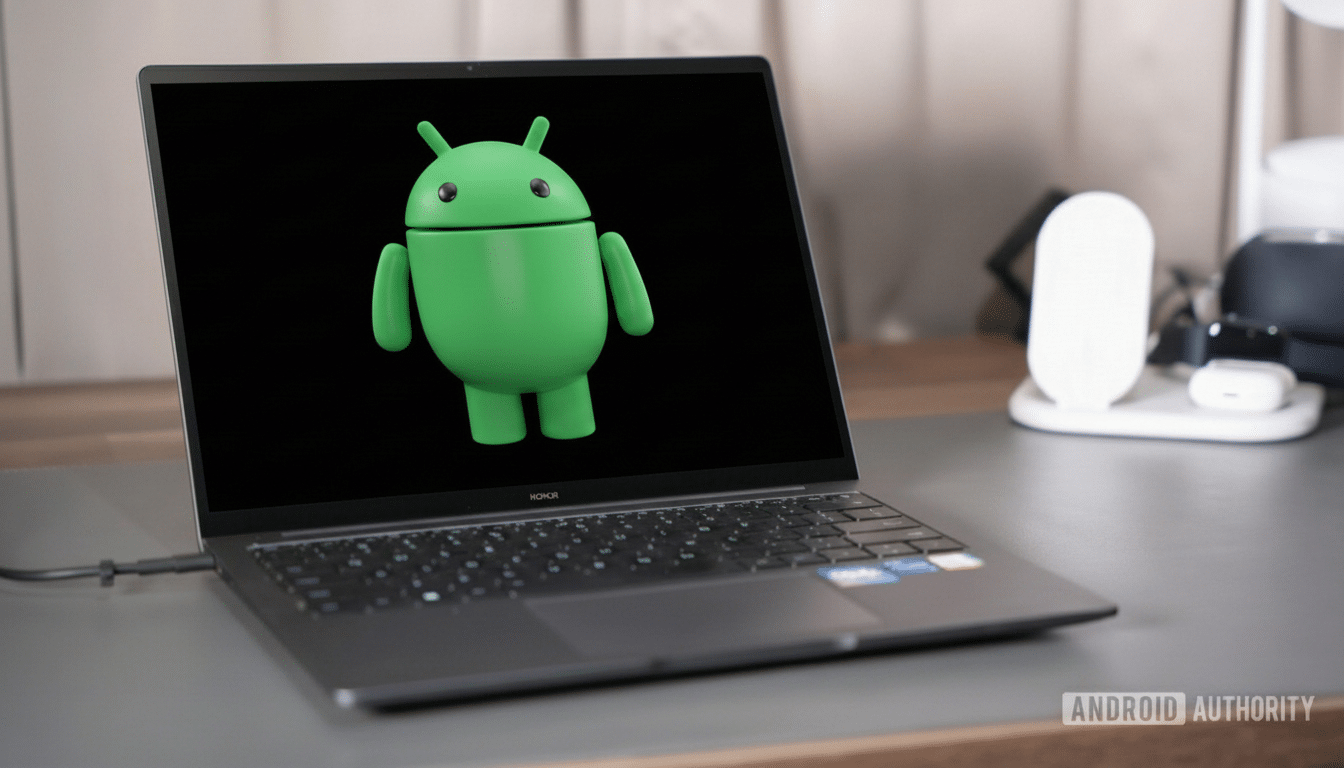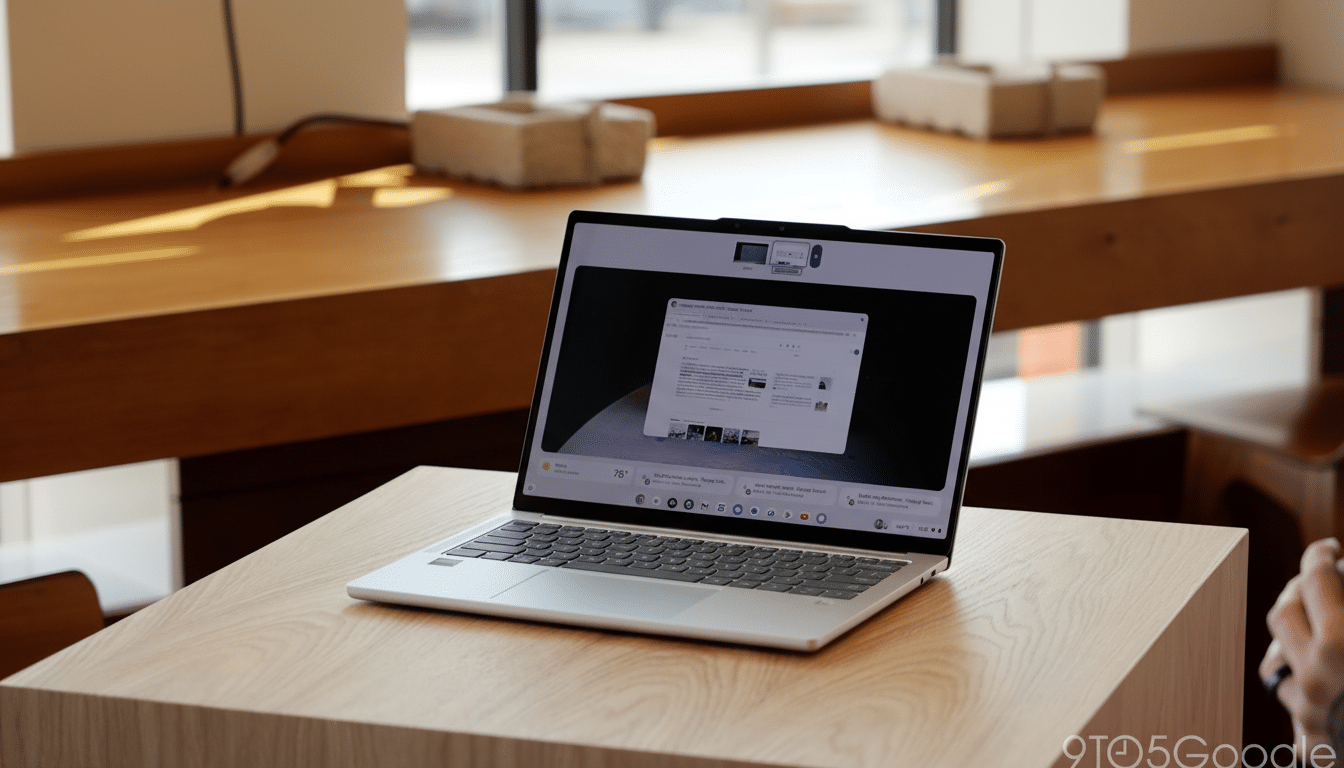I have genuine Windows fatigue, and Google’s rumoured Aluminium OS — which seems to combine ChromeOS, Android and AI as a central pillar — has my full attention. If Google knocks five very specific things out of the park, I’d close my Windows machine and never look back.
The stakes are high. According to StatCounter, Windows still dominates with about 70% of the desktop market; but users are becoming increasingly frustrated with bloat, cloud nags and uneven AI rollouts. Google does have the building blocks: a massive Android app library, ChromeOS security and updates, increasingly powerful on-device AI with Gemini Nano. What it’s now missing is PC-style gaming that feels consistent and offline‑able, unapologetic.

Seamless Android Continuity Between Devices
Continuity is the killer feature that might make Aluminium OS impossible to refuse. I wish my phone and laptop acted like a single system: shared clipboard, SMS/RCS and calls on the desktop, instant handoff of video calls, Maps directions that leap from laptop to phone as I walk out the door. Apple has raised the bar with Handoff and Continuity; Android should match or exceed it out of the box.
Windows shows some of this with Phone Link, but it’s spotty and limited to supported brands. Aluminium OS supposedly will bring lossless first‑party contacts, messages, photos and notification sync, with session handover for apps such as YouTube, Docs or Drive replacements, and third‑party chat. A middle‑of‑the‑road Nearby‑style protocol for quick, local device‑to‑device transfers would be the icing on the cake.
Offline-Capable Device AI That Works Reliably
AI that isn’t Wi‑Fi‑murdered is not AI I can trust. Even on laptops with NPUs designed to run models locally, Microsoft’s Copilot still relies heavily on the cloud. Google has already demonstrated that it’s possible to run meaningful models on phones with Gemini Nano; Aluminium OS should scale that up for PCs.
Give me offline transcription, summarization, code completion, image cleanup and searchable screenshots running on a local model that actually lights up the NPU. Add, then, smart privacy features — on‑device redaction, sensitive data shields and per‑app model permissions — so AI can make work smarter without shipping my life to a server.
Offline‑First Design Outside the Browser
Chromebooks have gotten better, but a modern desktop OS needs to be bulletproof offline. Aluminium OS should treat local storage and local apps as first‑class citizens. That includes easy offline setup for mail and files (nothing hidden under a toggle), smart background sync buffering, and default device specs of at least 256GB (and preferably 512GB) so that media, catalogs and games fit comfortably on the machine.

Equally important is ecosystem flexibility. Search and sync with any file provider. If I want to use Dropbox, Box or Synology instead of Google Drive, the OS should link in at the file system level so it can be searched locally and amended, etc. Google already offers 10 years of automatic updates on Chromebooks; bring that to Aluminium OS, with clear firmware, driver and security patch lifecycles for both Arm and x86 devices.
Desktop Multitasking Done the Native Way
This must not be a blown‑up tablet UI. I actually do want strong windowing with multiple‑monitor awareness, virtual workspaces, reliable per‑app zoom and keyboard‑first controls. Think Windows Snap with power‑user gravity: snap groups, tiling presets, quick layouts, and a task manager that specifies CPU/GPU/NPU usage per process so I can exterminate a runaway app or model session instantly.
That’s where Google’s expertise in touch and gesture design comes into play. Quick commands to open shortcuts, switch spaces and snap windows would make 2‑in‑1s sing. Peripheral support needs to be pure, plug‑and‑play — docks, monitors, gamepads and studio microphones — without a shark‑infested, driver‑hunting exercise.
Windows App Compatibility That Doesn’t Hurt
It’s the moonshot, but it’s the switch‑maker. A compatibility layer for Windows apps, running near‑natively, would also banish my last productivity reservations. Linux has paved the road: hundreds of Windows titles are now playable on Linux thanks to Wine/Bottles for general‑purpose software and Valve’s Proton for games, ably demonstrated by the overwhelming popularity of the Steam Deck on Linux.
For Aluminium OS, that could be a Google‑supported compatibility stack with graphics translation, production‑grade DXVK/Vulkan pipelines and clever binary translation for x86‑on‑Arm along the lines of what Rosetta did for macOS. Combine with top‑notch Linux containers for dev workloads, CUDA/ROCm alternatives for GPU compute where available, and I can run IDEs, LLMs and legacy tools without maintaining a Windows partition.
If Google delivers on these five pillars — smooth Android continuity, offline AI, real offline‑first design, native‑like multitasking and credible Windows‑app compatibility — Aluminium OS won’t just take the fight to Windows; it’ll offer tired PC owners a realistic, powerful alternative.

